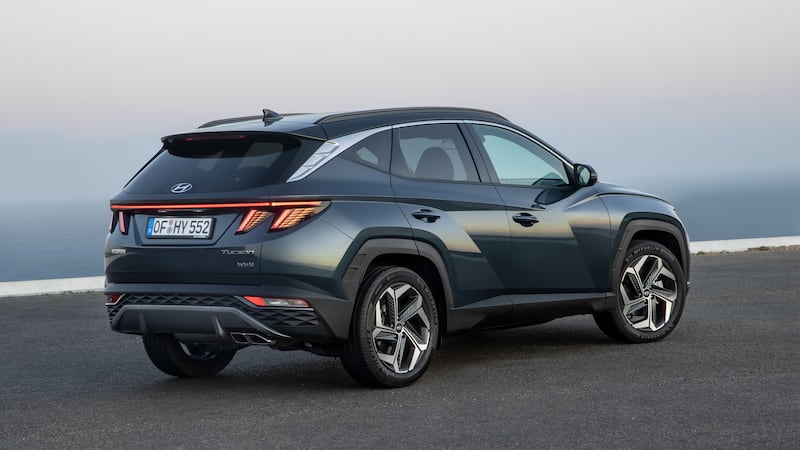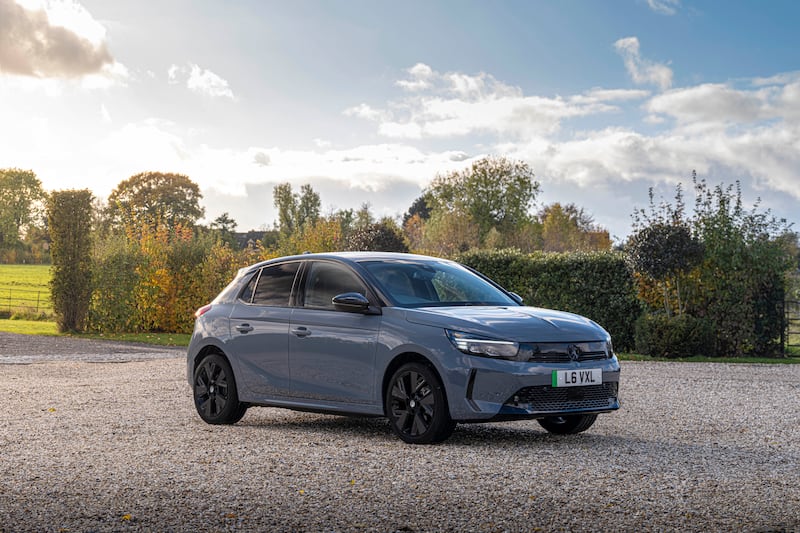Sales of new cars increased by 18% during 2023, but the Northern Ireland motor industry has still not recovered to pre-pandemic levels, the latest data suggests.
A total of 45,363 new cars were registered in the north throughout the whole of last year according to the Society of Motor Manufacturers and Traders (SMMT).
That was 6,982 more new cars sold than during 2022.
Sales activity at car showrooms in 2023 was still around 12% below pre-Covid levels.
Northern Ireland car dealerships sold 51,512 new cars in 2019, according to the SMMT.
A similar year-on-year increase in sales this year could finally see the sector recover to 2019 levels.
The Hyundai Tucson was once again the north’s best-selling new car, with 1,409 units registered in 2023, 313 more than in 2022.
The Ford Puma also sold well in 2023, with 1,285 new models registered, compared to 889 in 2022, while the Peugeot 2008 (1,112) and Kia Sportage (1,120) also broke the 1,000 sales mark last year.
| RANK | MANUFACTURER | MODEL | NUMBER SOLD IN 2023 |
|---|---|---|---|
| 1 | Hyundai | Tucson | 1,409 |
| 2 | Ford | Puma | 1,285 |
| 3 | Peugeot | 2008 | 1,122 |
| 4 | Kia | Sportage | 1,120 |
| 5 | Vauxhall | Mokka | 991 |
| 6 | Ford | Fiesta | 969 |
| 7 | Renault | Captur | 946 |
| 8 | Nissan | Qashqai | 942 |
| 9 | Nissan | Juke | 877 |
| 10 | Ford | Kuga | 844 |
In total, 1,983 new cars were registered in Northern Ireland during the month of December, around 300 (18%) more than the same month last year.
While the industry continues to recover, some major names have already responded to the challenging environment.
Last month it emerged that the north’s largest motor group Charles Hurst, is planning to make up to 100 redundancies, including cuts to its sales staff and management team.
It followed the October acquisition of its parent group by Ontario-based car dealership Global Auto Holdings in a deal worth more than £500 million.
Charles Hurst said the planned redundancies were required ensure “a manageable cost base”.
The 18% year-on-year growth in sales in the north matched the UK-wide trend, where sales recovered at the same rate.
Mike Hawes, chief executive of the SMMT, described the increase as “a very positive result”, particularly considering the “relatively negative economic backdrop”.
But the SMMT said the rise from 2022 was driven entirely by businesses investing in large fleets (up 38.7% year-on-year), with demand from private consumers remaining stable at around 818,000 units.
Mr Hawes said he did not believe demand for new cars would return to levels seen before the virus crisis, partly due to changing working patterns resulting in less commuting.
Uptake of battery electric new cars reached a record level last year with 315,000 units but their market share was down from 16.6% during the previous 12 months to 16.5%.
Volumes actually fell by 34.2% in the last month of 2023, but the SMMT attributed this to an “abnormal” December 2022 when many orders were fulfilled.
The SMMT called on the Government to halve VAT to 10% on new electric car purchases by private buyers for three years.
Such a move would stimulate demand by reducing price tags by around £4,000 on average, the organisation stated.
This would be roughly similar to tax incentives available for fleets purchasing new electric cars.
The policy would result in an estimated 250,000 additional battery electric new cars on the road over three years, the SMMT said.
Only one in 11 private consumers in the UK buying a new car last year chose a battery electric model.
Mr Hawes said the UK’s market share for those cars was “probably in the bottom half in Europe”, below nations such as France, Germany, Ireland and Portugal.
He attributed this to a lack of incentives in the UK.








